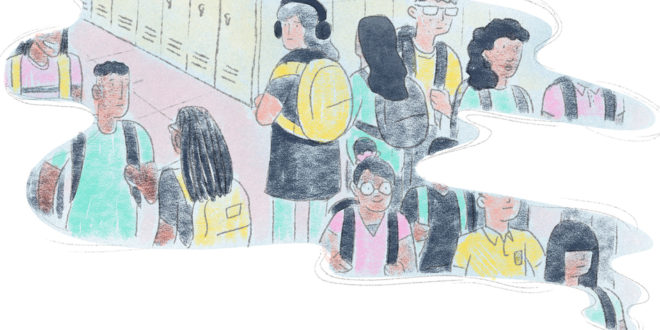Podcast: Play in new window | Download (Duration: 5:33 — 3.9MB)
The Monroe County Community School Corporation Board of Trustees recommended on the Tuesday meeting that they should join a multidistrict lawsuit against the company.
The lawsuit has already gained traction, involving nearly 100 school districts over the past couple of years.
It was first filed in California Superior Court in October of 2019.
The lawsuit asks for compensation for damages caused by Juul including compensation for the hardship in teaching education with the distraction of e-cigarettes.
Other desires from the lawsuit are prevention and recovery programs, counseling, and treatment for addicted students.
More damages that the lawsuit seeks is the cost of installing vaping detection devices in school restrooms and funding for vaping educational programs.
The main hope for this lawsuit is to prevent the e-cigarette “epidemic” in high schools to continue how it has been lately.
The California Attorney General, Xavier Becerra held a joint press conference with LA officials in November of last year to announce a major lawsuit against JUUL. He opened by saying, “Today the state of California, joined by the District Attorney and the County of Los Angeles, is taking legal action against JUUL, an electronic cigarette maker, for engaging in unlawful and deceptive business which have harmed Californians and are endangering lives, especially of children.”
Becerra explained the spike seen in juul use from 2017 to 2019.
“The percentage of high school students today vaping has risen from 11.7% just two year ago in 2017 to 27.5% in 2019. Today, 1 in every 4 high school students is vaping.”
Becerra used the example of big tobacco companies in the 1990s to compare the similarities that Juul has used in their marketing today.
“Juul ran big tobacco’s playbook at its place, and the results were predictable. Millions of teens and young Americans now use their product. While juul’s profits soured, their users became addicted and their health was compromised.”
To conclude the conference, Becerra emphasized the urgency of the issue and the motivation to end the teen Juul crisis saying, “In California, we will not allow kids to be lured in by deceptive practices, we will not retreat and we will fight back. We will hold any companies’ feet to the fire for lying to our kids and fueling a public health crisis.”
***
The now famous e-cigarette company, Juul began their rise in 2016 and quickly became the best-selling e-cig on the market the following year.
In March of 2018 though, reports showed that teens had gained access to the devices in extreme numbers and that ‘Juuling’ had become an epidemic at high schools.
The Food and Drug Administration made a surprise visit to the Juul Headquarters in October of 2018, where thousands of pages of documents were seized.
The inspection of the company was in response to the spike in teen use that year especially.
The FDA announced that Juul would be required to submit plans to address their youth customers within 60 days, and eventually banned popular flavored nicotine liquids that attracted kids.
***
One district solicitor of Pittsburgh, Ira Weiss stated during a school board meeting, “It’s very similar in concept to the tobacco litigation of some 20 years ago except this is not a class action.”
Cigarette manufacturers were sought against in the 1950s, when the first reports of cancer linking to cigarettes emerged.
In the 1980s, the case Cipollone v. Liggett arised where the plaintiff and her family alleged that cigarette manufacturers were aware of the causes including cancer and addiction, however did not warn customers.
Plaintiffs began to gain success in the 1990s when some cigarette company documents were leaked that showed that companies were in fact aware of the dangers of tobacco.
One lawyer representing Los Angeles, Rahul Ravipudi explained “School districts, by no control or choice of their own, have effectively become ground zero for the infiltration of JUUL’s marketing and the epidemic JUUL has created.”
The latest school district to join in and sue Juul was Pittsburgh.
According to Vaping Post, in october of 2020, the school district was given approval by the school board to enter into a contract with the Frantz Law Group in San Diego.
Frantz Law Group is currently filing the lawsuits in the U.S. District Court in the Northern District of California where Juul Inc. is located.
Bloomington High School South was one high school among many that began tightening the ropes on vaping in school after it was clearly an issue.
In 2018, South Principal Mark Fletcher announced in an email, the new discipline policies regarding electronic smoking devices.
The outline stated:
First time offenders would serve a one day suspension and be mandated to attend a “Teens Beat Tobacco” class by IU Health
Second time offenders would serve a 3 day suspension and pay a fine of $133.50 to the Monroe County Clerk’s Office.
And third time offenders would serve a five day suspension.
The MCCSC School Board meeting on Tuesday, December 15th involved many concerned members for the juul crisis.
One board member Sue Wanzer stated on behalf of the e-cig companies, “They weren’t truthful and they did take advantage of many young people.”

 WFHB Bloomington Community Radio
WFHB Bloomington Community Radio


